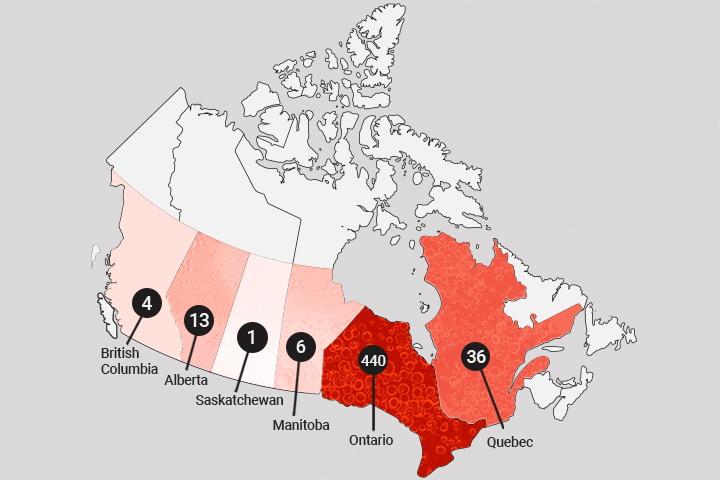Measles Outbresk in Alberta
Photo Credit: Global News
As of Oct. 24, there have been 1,940 total measles cases reported in Alberta. This recent outbreak – starting in the early months of this year – has spread rapidly, causing concern for hospitals, families, and schools across the province. However, the outbreak is not just contained to Alberta, as a total of 5090 cases have been reported in Canada in 2025, 4,729 of them confirmed and 361 probable, as of Oct. 20.
In May, Minister of Primary and Preventative Health Services Adriana LaGrange shared that the Alberta government is expanding vaccination clinics in the central and south zones of the province, where there are frequent outbreaks. They also promised to launch a public measles awareness campaign that is going to be shared in 14 languages. Vaccination should help with ensuring broad protection against measles in the community; however 95 per cent of the community needs to be vaccinated, and some regions have yet to reach that number.
“We’re not here to judge or pressure. We know immunization decisions can be deeply personal, but we’re here to support families with science-based information and to make sure people know where to go and what to do,” Alberta’s interim chief medical officer of health, Dr. Sunil Sookram said, according to CTV News. “The measles vaccine is safe. It’s effective – and we know this to be true because according to recent studies, it has saved the lives of over 154 million people in the last half century.”
The expanded advertising campaign launched by the government has helped raise awareness about the seriousness of the measles outbreak, how the disease spreads, and the importance of vaccines. The campaign has led with the simple statement: “Don’t get measles. Get immunized.”
This recent outbreak has been a cause of concern for many families, especially those who have high-risk individuals such as infants, immunocompromised people, and pregnant women. Hospitals are also under a lot of stress with a strain on resources, medical staff, and room for patients. Additionally, hospitals are working on implementing costly isolation protocols and managing the rise in patients being admitted.
Measles is a very dangerous disease, and in extreme cases can cause ailments such as ear and lung infections or encephalitis (swelling of the brain), which can lead to seizures, deafness, or brain damage. One to three of every 1,000 people with measles die.
Measles is an airborne disease that spreads easily and is very contagious, meaning that you can still contract the disease even if you aren't in direct contact with someone who is infected. Similar to many common diseases, you can spread measles before you even present symptoms. Symptoms can start anywhere between seven and 21 days. The people most at risk of contracting measles are those who aren’t fully immunized against it or have never had the virus.
Unfortunately, measles does not have a cure, and can only be prevented through immunization. The more immunized people there are, the less of a risk measles poses to community members who are not immunized or who are unable to get immunized.

